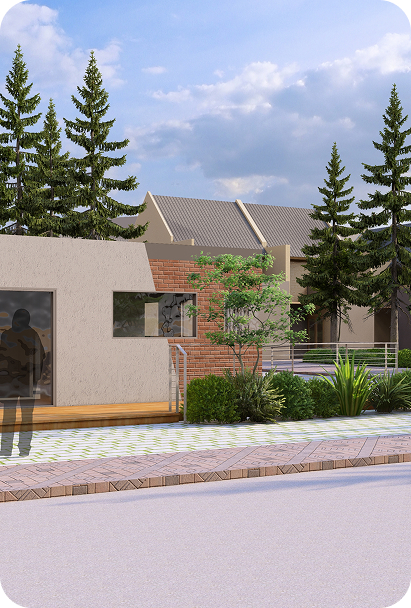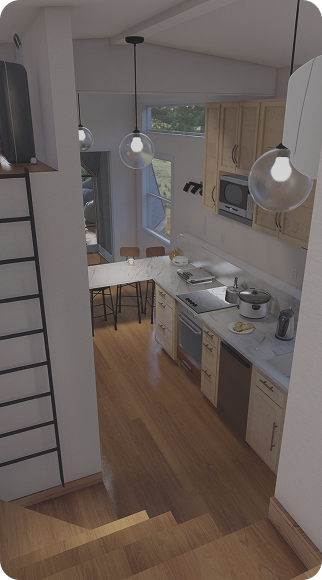Our care coordination tools are selected based on relevance, reliability, and ability to perform in real-world care environments.

At Quilt, we integrate artificial intelligence to improve the decision-making process, care delivery, operations management, and how long-term costs are contained.
Quilt’s passive monitoring detects subtle dementia warning signs, like behaviour changes or sleep shifts, helping staff intervene early.
AI-supported behavior monitoring identifies deviations from daily routines and habits, such as pacing, withdrawal and sleep disruption.
Non-invasive systems that use sensors provide monitoring of mobility, toileting patterns, or room usage.
Fall detection and alert protocols provide real-time notifications.
Data collection for post-incident analysis.

AI technology supports care without adding intricacy. Each element of our innovative system contributes to quality of life and mitigates health and safety risks.
Smart lighting adjusts throughout the day to maintain circadian rhythm and reduce disorientation.
Wearable health monitors track movements and vitals, ensuring immediate staff intervention during falls or other incidents.
Geo-fencing tools enable autonomy within safe boundaries, reducing instances of unsafe wandering.
Environmental automation ensures real-time lighting, temperature, and air quality response, minimizing sensory stress and improving comfort.
Digital infrastructure connects these systems to care teams, reducing task load while enabling prompt response.
Smart technologies that protect elderly autonomy operate seamlessly in daily life, supporting independence while giving staff timely insights, ensuring care without creating dependency.

AI supports smoother daily operations in care environments with limited staff time and unpredictable needs.
Automated task scheduling helps manage staff time across units and teams.
Predictive maintenance reduces unexpected disruptions in HVAC, water, or lighting systems.
Real-time dashboards allow administrators to track resident movement, room usage, and service delivery.
Workflow data reveals systemic bottlenecks, like night-shift overuse or response delays, enabling protocol, staffing, or design adjustments without audits.

The application of artificial intelligence in healthcare supports financial sustainability, making care delivery more precise.
Fewer emergency transfers lower downstream costs (e.g., ER visits, hospital stays).
Preventing minor incidents from escalating reduces litigation, reputational risk, and insurance exposure.
Staff optimization, strategic resource allocation and streamlined facility management reduce operational costs.
Long-term infrastructure savings by deferring major retrofits or expansion through better space use.
Integrating AI-supported, technology-driven strategies helps ease system pressures by improving efficiency, reducing risk, and containing long-term costs.

Quilt uses AI technologies to enhance the functionality of dementia-friendly environments without interfering with residents’ lives

Passive or non-invasive devices (e.g., sensors over cameras)
Low-latency, high-reliability design
Compliance with Canadian privacy legislation and data security protocols
Interoperability with care documentation systems or provincial health records
Staff onboarding and training support
System deployment is staged thoughtfully to avoid staff overload and ensure consistent care delivery.
We coordinate with clinical leads, IT teams, and vendor partners to match the AI-assisted care system to local infrastructure, workforce skill sets, and residents’ needs.
We partner with researchers, designers, caregivers, and innovators to build and refine the Quilt Community. Join us in redefining dementia care.


Get our latest articles and business updates that you need to know, you’ll even get special recommendations weekly.
Copyright © 2025 Quilt Community | All Rights Reserved